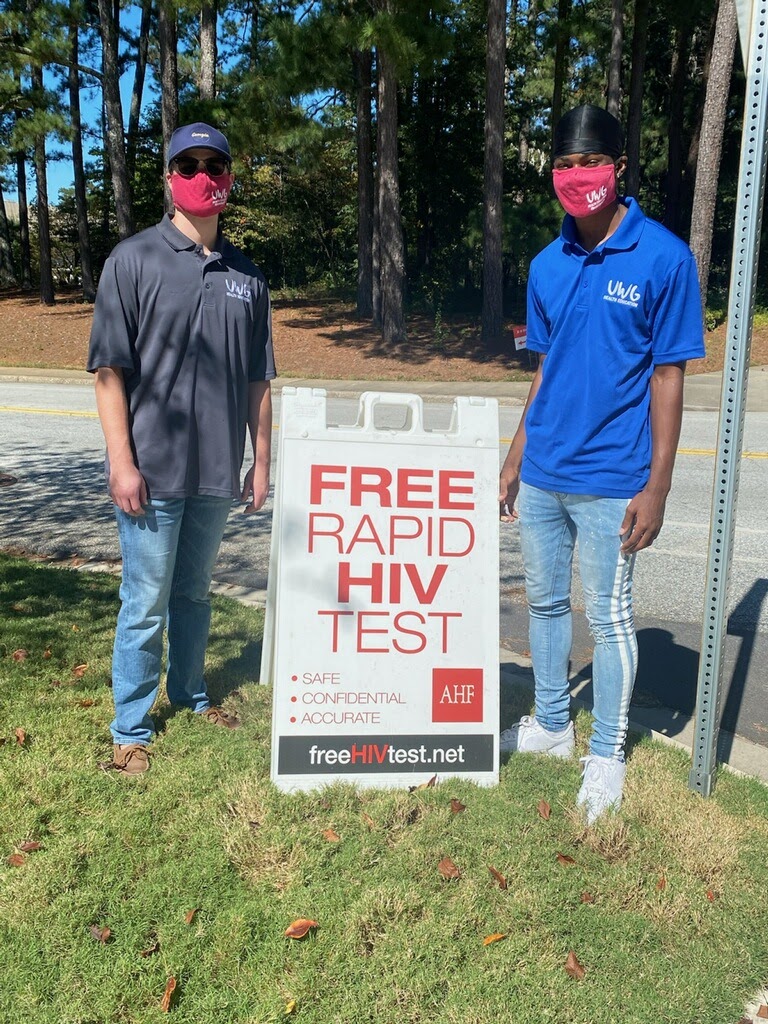There are some conversations that are hard to have, for many college students those conversations revolve around relationships and sex. While both can be hard to talk about, the University of West Georgia’s Peer Education program is working to create healthy discussions on campus about health education.
Established in 2002 as a stem of Health Education at UWG, Peer Education trains students, known as Peer Educators, on topics such as Alcohol, Other Drugs, Sexual Assault Response and Prevention, Sexual Health and Nutrition and Wellness. Peer Educators then work directly with fellow students to form healthy conversations around otherwise taboo topics through tabling, on-campus events and social media posts.
During the month of February, Peer Education focused on healthy relationships teaching students to understand what a healthy versus an unhealthy relationship looks like. It also informed students on ways to have a healthy relationship, as well as how to help someone who is in an unhealthy relationship. Peer Education also focuses on safer sex, covering sexual intercourse as well as how to prevent risk, including safer sex tips, condoms, sexually transmitted infections and diseases.
Jacquelyn Stubenraugh, who goes by Jacqui, is the current Health Education Graduate Assistant, who oversees Peer Education and the work the program is doing.
“It has been shown that students learn better from their peers,” says Jacqui. “Most of the time the Peers talk to me about their interactions with students and a lot of the time the students let the peers know how much they helped.
“The Peer Educators help ensure students they are getting up to date and correct information about many different wellness topics,” continues Jacqui. “We also have a team of three professionals that are always willing to talk with students. We want to help our students adopt healthy behaviors throughout their lives.”
Aside from informing students, Peer Education actively works to implement easier access to health resources around the UWG Campus. At the Health Center students can receive free STI testing, as well as yearly exams. Once a semester, Peer Education offers free HIV Testing on campus, which will be returning to campus in the coming weeks.
“A lot of the time parents do not talk to their children about safer sex or healthy relationships,” says Jacqui. “We have heard multiple times from students that we are the first group to educate them on these topics.
“It is important for us to get the information to them so they can make conscious healthy decisions in their life,” Jacqui continues. “Healthy relationships are important to have conversations around because it helps students understand each other. They also learn how they should be treated and how they should treat others in any relationship. We help students identify their boundaries and how to have hard conversations with other people they are in relationships with (romantic, platonic, coworker, professor).”
In the future, Peer Education hopes to create a wider spread impact on campus by providing students with dispense machines in order for students to have better access to what they need such as condoms. Peer Education also hopes to partner with more departments on campus to provide greater outreach to students.
You may also like
-
UWG’s Ingram Library Hosts Pop-Up Study Spot to Help Students Prepare for Finals Week
-
UWG Offers Mental Health Support And Academic Services To Maintain Student Success During Finals Week
-
UWG Alumnus Shares His Experience Exploring the Underground Flood Channels of Las Vegas
-
Georgia Students Simulate the Struggles of Dementia
-
UWG PR Students Score a Georgia Power Tour at Atlanta Corporate Office
